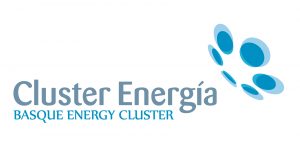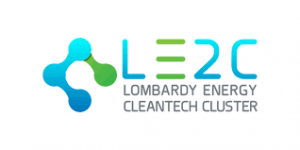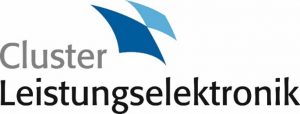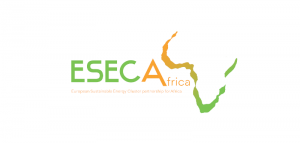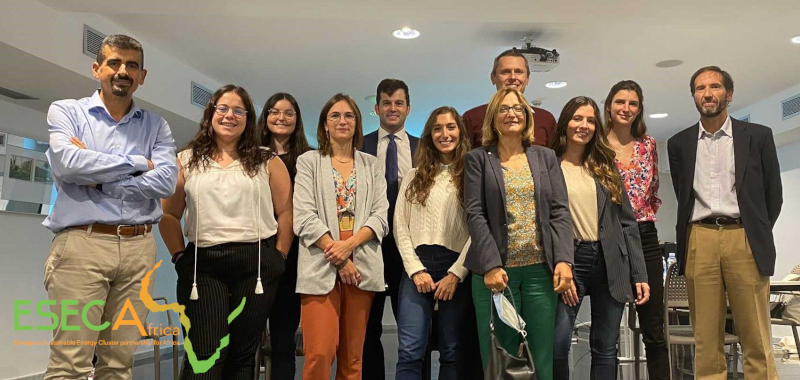
ESECA – European Sustainable Energy Cluster partnership for Africa
À propos de ce projet
https://clustercollaboration.eu/content/european-sustainable-energy-cluster-partnership-africa
Type de projet
COSME - Clusters Go International Programme
Thématique
Énergie en Afrique
Statut
En cours
Année
2021-2024
Budget
600 000€
Localisation
Sénégal, Ghana, Mozambique
Thème
English version below ▼▼
Contexte
ESECA est un partenariat formé par cinq clusters espagnols, allemand, italien et français et financé par la Commission européenne dans le cadre du programme COSME Clusters GO International. Ce programme vise à soutenir la coopération internationale entre clusters dans des domaines d’intérêt stratégique pour la Commission et à destination des pays tiers au-delà des frontières européennes.
Objectifs
ESECA vise à soutenir l’internationalisation des PMEs européennes des secteurs des énergies renouvelables et des smart grids en Afrique sub-saharienne. Cinq marchés cibles ont été identifiés pour favoriser les collaborations entre PME européennes et africaines : le Sénégal, le Ghana, le Kenya, la Tanzanie et le Rwanda.
Découvrez nos analyses de ces cinq marchés
En particulier, le projet vise à :
1) Intensifier les collaborations entre les PME européennes …
- Favoriser la coopération et la création de partenariats transrégionaux entre clusters et PMEs
- Aider les PMEs à identifier des opportunités d’affaires et d’internationalisation
- Positionner les PMEs dans des consortiums transeuropéens
2) … Des secteurs des énergies renouvelables et des smarts grids …
Technologies ciblées :
- Production décentralisée d’énergie
- Réseaux intelligents
- Énergie solaire et éolienne et autres sources d’énergie renouvelables
- Solutions de stockage d’énergie
- Monitoring innovant et digitalisation
3) …Pour développer une stratégie commune d’internationalisation
- Identifier et analyser les marchés cibles potentiels
- Analyser en profondeur ces marchés cibles
- Développer des rapports de marché spécifiques
- Définir un plan stratégique d’internationalisation
- Organiser des missions dans les pays cibles
- Signer des accords de coopération avec les associations et/ou clusters africains concernés
Démarche partenariale
Le projet ESECA s’inscrit dans la stratégie Acteurs de l’Energie pour l’Afrique mise en oeuvre par MEDEE aux côtés de la Région Hauts-de-France. Le projet ESECA permet notamment de renforcer le soutien spécifique proposé par le pôle aux PMEs régionales.
Pour ce programme ambitieux, MEDEE a souhaité s’entourer d’acteurs européens expérimentés et complémentaires sur le plan thématique. Le projet est coordonné par le Basque Energy Cluster en partenariat avec MetaIndustry4, le Lombardy Energy Cleantech Cluster et le Cluster Leistungselektronik.
Ensemble, nos clusters rassemblent environ 550 organisations et près de 290 PMEs.
Retrouvez la plaquette de présentation du projet
Visitez notre site internet
Suivez-nous sur LinkedIn
Suivez-nous sur Twitter
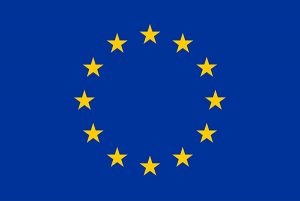
 This project note is part of the ESECA project (Grant Agreement 101035882), which has received funding from the European Union’s COSME Programme (2014-2020).
This project note is part of the ESECA project (Grant Agreement 101035882), which has received funding from the European Union’s COSME Programme (2014-2020).
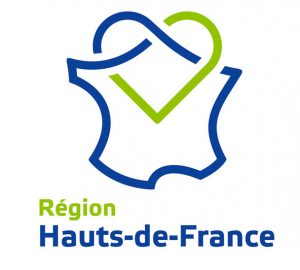
Les actions du pôle MEDEE dans le cadre du projet ESECA sont réalisées avec le soutien de la Région Hauts-de-France.
Context
ESECA is a partnership formed by five European clusters from Spain, Germany, Italy and France financed by the European Commission as part of the COSME Clusters GO International programme. The main objective of this programme is to support international cluster cooperation in fields of strategic interest towards third countries beyond Europe.
Objective
ESECA aims at intensifying business network collaboration among European companies from the renewable energy and smart grids sector to develop a joint internationalisation strategy towards Sub-Saharan African markets. Five target markets were identified to foster collaborations among European and African SMEs: Senegal, Ghana, Kenya, Tanzania and Rwanda.
Discover our analyses of these five target markets
Our specific objectives are:
1) Intensify business network collaboration among European SMEs …
- Foster clusters & SMEs trans-regional cooperation and partnership building
- Help SMEs identify business and internationalisation opportunities
- Position SMEs into trans-European consortiums
2) … From the renewable energy and electrical power generation, distribution and transmission sectors …
Targeted technologies :
- Distributed Energy Resources
- Smart Grids
- Solar & Wind Energy and other renewable energy sources
- Energy storage solutions
- Innovative metering and digital solutions
3) …To develop a joint internationalisation strategy plan
- Identify and analyse potential target markets
- Analyse in depth these target markets
- Develop specific market reports
- Define an internationalisation strategy plan
- Organise direct and reverse missions
- Sign Cooperation Agreements with relevant African associations and/or clusters
Collaborative strategy
The ESECA project is part of the specific strategy implemented by MEDEE alongside the Hauts-de-France Region to support collaborative projects between its members and African stakeholders. ESECA will specifically strengthen the support offered by MEDEE to regional SMEs.
For this ambitious program, MEDEE collaborates with experienced European actors that show complementarity with the cluster activities on thematic levels. The project is coordinated by the Basque Energy Cluster in partnership with MetaIndustry4, Lombardy Energy Cleantech Cluster and Cluster Leistungselektronik .
Together, our clusters gather around 550 organizations and nearly 290 SMEs.
Discover the project brochure
Visit our website
Follow us on LinkedIn
Follow us on Twitter

 This project note is part of the ESECA project (Grant Agreement 101035882), which has received funding from the European Union’s COSME Programme (2014-2020).
This project note is part of the ESECA project (Grant Agreement 101035882), which has received funding from the European Union’s COSME Programme (2014-2020).

The activities of MEDEE cluster in the framework of the ESECA project are carried out with the support of the Hauts-de-France Region.
Partenaires

